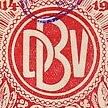Related Research Articles
The General German Workers' Association was a German political party founded on 23 May 1863 in Leipzig, Kingdom of Saxony by Ferdinand Lassalle. It was the first organized mass working-class party in European history.

Wilhelm Hasenclever was a German politician. He was originally a tanner by trade but later became a journalist and author. However, he is most known for his political work in the predecessors of the Social Democratic Party of Germany (SPD).

Wilhelmine Kähler was a German labour and women's rights activist, and politician.

Friedrich Wilhelm Fritzsche, commonly known by his middle name, was a German trade unionist and socialist politician who was elected a member of the Reichstag. He was a founder and President of the General German Cigar Workers' Union (ADZV) in 1865. The subject of police persecution for his radical political views, in 1881 Fritzsche emigrated to the United States of America, where he edited the newspaper the Philadelphia Tageblatt for a time before retiring from politics.

The German Metal Workers' Union was a German industrial union for metalworkers formed in 1891 and dissolved after the Nazis' accession to power in 1933.

The German Clothing Workers' Union was a trade union representing people involved in making clothing in Germany.

The German Wood Workers' Union was a trade union representing carpenters, joiners, and related workers, in Germany.

The German Hat Workers' Union was a trade union representing hatters in Germany.

The German Agricultural Workers' Union was a trade union representing agricultural and forestry workers in Germany.
The Union of Gardeners and Nursery Workers was a trade union representing gardeners, horticultural workers, and flower arrangers in Germany.

The Union of Municipal and State Workers was a trade union representing public sector workers in Germany.

The German Union of Saddlers, Upholsterers and Portfolio Makers was a trade union representing leather goods and upholstery workers in Germany.
The Union of Bookbinders and Paper Workers of Germany was a trade union representing workers involved in manufacturing paper and binding books in Germany.
The German Leather Workers' Union was a trade union representing workers involved in tanning and glovemaking.

The German Construction Workers' Union was a trade union representing building workers in Germany.
The Central Union of Bakers and Confectioners was a trade union representing workers in bakeries and related trades in Germany.
The Central Union of Butchers and Kindred Trades of Germany was a trade union representing butchers and abattoir workers in Germany.

The German Furriers' Union was a trade union representing fur workers in Germany.
The Union of Saddlers and Portfolio Makers was a trade union representing workers involved in making saddles, bags and wallets.
Albert Regge was a German trade union leader.
References
- 1 2 Graham Ford, "Friedrich Wilhelm Fritzsche," in A. Thomas Lane (ed.), Biographical Dictionary of European Labor Leaders: A-L. Westport, CT: Greenwood Press, 1995; pp. 327-328.
- 1 2 "Deutscher Tabakarbeiter-Verband". EHRI. Retrieved 27 May 2020.
- ↑ "Deutscher Tabakarbeiter-Verband" (PDF). Friedrich Ebert Stiftung. Retrieved 27 May 2020.
- ↑ Heyde, Ludwig (1931). Internationales Handwörterbuch des Gewerkschaftswesens. Berlin: ADGB. Retrieved 27 May 2020.